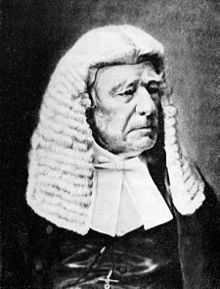Cape Dutch
The terms have been evoked to describe an affluent, educated section of the Cape Colony's Afrikaner population which did not participate in the Great Trek or the subsequent founding of the Boer republics.
[5] In 1805, a relative majority still represented old Dutch families brought to the Cape during the late seventeenth and early eighteenth centuries; however, close to one-fourth of this demographic group was of German origin and one-sixth, of French Huguenot descent.
[7] Among the colonists themselves there had developed a notion of a Boer people; although the term could denote any Dutch-speaking white settler it was usually only the impoverished pastoral farmers on the colony's frontier who applied this concept to themselves and formed a unique subgroup accordingly.
[8] The term's explicit connotation to the Netherlands, and the indiscriminate manner in which it was applied by English speakers, also sparked a revival of interest among colonists of German or French origin in their ancestral roots.
[9][10] Reflecting the multi-national character of the company's workforce and overseas settlements, smaller numbers of German and French Huguenot immigrants were also allowed to settle in South Africa, and by 1691 over a quarter of the Cape's European population was not ethnically Dutch.
[4] This policy began to dissolve after 1895, when local political leaders sought to distance themselves from Britain's imperial agenda and what they perceived as unwanted interference by English capitalists such as Cecil Rhodes in the legal and constitutional traditions of the colony.
[4] Popular affectation for British imperial traditions, culture, and patriotism among the Cape Dutch was rapidly replaced by a more exclusive commitment to a greater Afrikaner nationalism.
[17] For his part Rhodes regarded the growth of pan-Afrikaner nationalism as an imminent threat, since a political union between the Boers and Cape Dutch would threaten British primacy in South Africa.
[17] Milner believed that most Cape Dutch secretly supported the Boer cause, and sought to ensure the local English-speaking population achieved political dominance through excessive gerrymandering.
[8] Christoffel Brand, son of a former Dutch colonial official and first Speaker of the Parliament of the Cape of Good Hope, was one of the most outspoken proponents for a unique Afrikaner ethnic consciousness.
[8] Brand argued that "England has taken from the old colonists of the Cape everything that was dear to them: their country, their laws, their customs, their slaves, their money, yes even their mother tongue...[they] had done everything to prove that they wanted to be British, while their conquerors had continually worked to remind them they were Hollanders".
[21] This may be regarded as the beginning of militant Afrikaner nationalism in the Cape, as the previously apolitical community began to form movements to defend its traditional values and dogma from anglicisation.
[21] With the renewed Cape Dutch interest in political affairs, their representation in parliament reached parity with English speakers and the Afrikaner Bond's influence grew.
[21] The Bond's rhetoric of economic empowerment attracted widespread support from the small but wealthy Cape Dutch landowning gentry, which felt threatened by the growing influence Anglophone farmers were acquiring over aspects of state policy pertaining to agriculture and land use.
[23] However, as time went on it focused less on immediate practical concerns such as opposing Anglophone agendas and adopted pan-Afrikaner nationalism and the eventual unification of South Africa under a unitary state as its core principles.
[24] During the late 1800s smaller numbers found employment in one of the Boer republics, the Orange Free State, where they were in high demand due to their education and technical skills.

